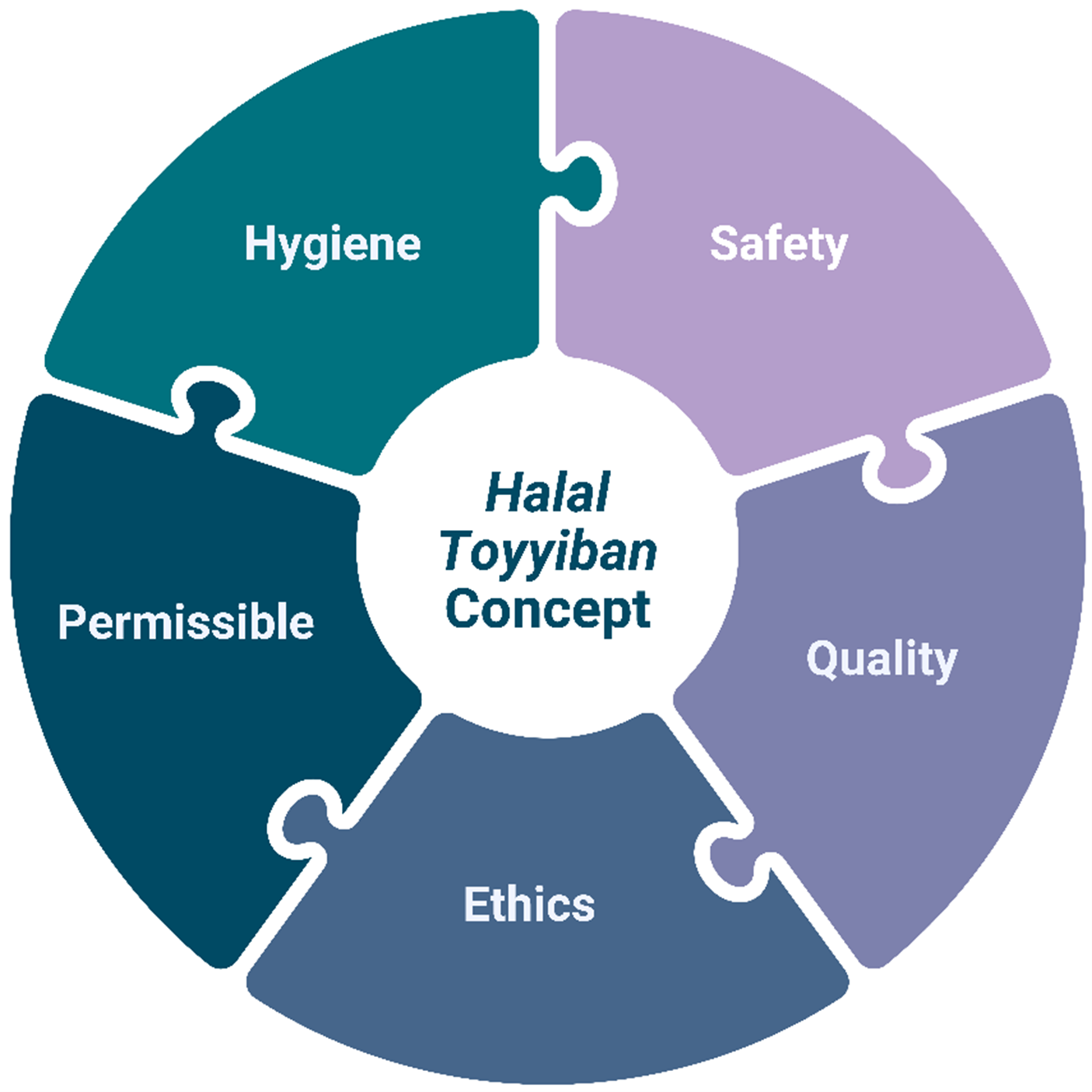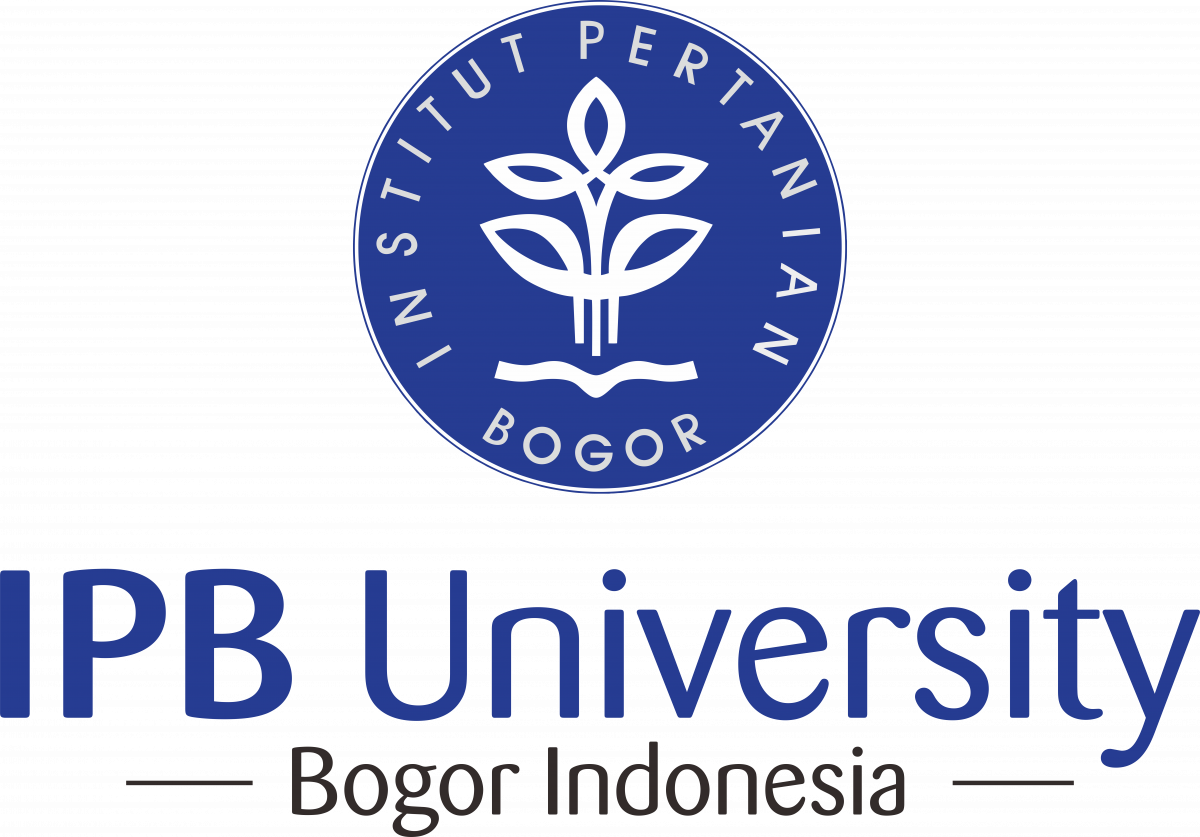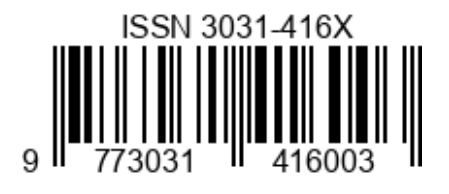Combining science and faith for better quality and safety in halalan toyyiban products
Abstract
Halalan Toyyiban, a concept rooted in Islamic teachings, is focused on quality, safety, ethical considerations, and permissibility. "halal" is defined as items permissible under Islamic law, while "toyyib" ensures the items are pure, wholesome, and ethically sourced. This concept, derived from the Quran and Sunnah of the Prophet Muhammad (PBUH), provides a comprehensive framework for guiding Muslim practices. In global marketplace, integrating scientific methods with halalan toyyiban principles is becoming increasingly important, particularly in the food, cosmetics, and pharmaceutical industries. Scientific methods offer effective tools for verifying the halal status of products and enhancing the toyyib attributes. This integration helps ensure that products meet both Islamic and modern standards, thereby strengthening the credibility of halal certifications through evidence-based practices. Techniques, such as chromatography, DNA testing, and mass spectrometry, were commonly adopted to detect non-halal contaminants and verify product integrity. These innovations reassures consumers that the products are religiously permissible and meet high standards of safety and ethical production.
References
Ab Mutalib NA, Jaswir I, Akmeliawati Rini. IIUM-Fabricated Portable Electronic Nose for Halal Authentication in Beverages. 2013. https://doi.org/10.1109/ICT4M.2013.6518899
Abdul Mokti H, Kamri NA, Mohd Balwi MAWF. Tayyiban in Halal Food Production: A Systematic Literature Review. Journal of Islamic Marketing. 2024;15(2):397-417. https://doi.org/10.1108/JIMA-03-2022-0098
Akter K, Khandaker M, Aziz MA, Mahmud S, Morshed MN, Uddin GMS. Halal Food Safety: PCR Based Detection of Porcine DNA in Imported Chocolate. Asian Food Science Journal. 2021;20(3):61-71. https://doi.org/10.9734/afsj/2021/v20i330279
Alipal J, Mohd Pu'ad NAS, Lee TC, Nayan NHM, Sahari N, Basri H, Idris MI, Abdullah HZ. A Review of Gelatin: Properties, Sources, Process, Applications, and Commercialisation. Materials Today: Proceedings. 2019;42:240-250. https://doi.org/10.1016/j.matpr.2020.12.922
Al-Mahmood OA, Fraser AM. Perceived Challenges in Implementing Halal Standards by Halal Certifying Bodies in the United States. PLOS ONE. 2023;18(8):e0290774. https://doi.org/10.1371/journal.pone.0290774
Alzeer J, Rieder U, Hadeed KA. Rational and Practical Aspects of Halal and Tayyib in the Context of Food Safety. Trends in Food Science & Technology. 2018;71:264-267. https://doi.org/10.1016/j.tifs.2017.10.020
Asih ID, Kemala T, Nurilmala M. Halal Gelatin Extraction from Patin Fish Bone (Pangasius hypophthalmus) By-product with Ultrasound-Assisted Extraction. IOP Conference Series: Earth and Environmental Science. 2019;299(1). https://doi.org/10.1088/1755-1315/299/1/012061
Aziz YA, Chok NV. The Role of Halal Awareness, Halal Certification, and Marketing Components in Determining Halal Purchase Intention Among Non-Muslims in Malaysia: A Structural Equation Modeling Approach. Journal of International Food and Agribusiness Marketing. 2013;25(1):1-23. https://doi.org/10.1080/08974438.2013.723997
Duopharma Biotech. Halal Initiatives. 2024.
Hamdan MN, Post MJ, Ramli MA, Mustafa AR. Cultured Meat in Islamic Perspective. Journal of Religion and Health. 2018;57(6):2193-2206. https://doi.org/10.1007/s10943-017-0403-3
Lehotay SJ, Hajšlová J. Application of Gas Chromatography in Food Analysis. Trends in Analytical Chemistry. 2002;21. https://doi.org/10.1016/S0165-9936(02)00805-1
McClements DJ, Das AK, Dhar P, Nanda PK, Chatterjee N. Nanoemulsion-Based Technologies for Delivering Natural Plant-Based Antimicrobials in Foods. Frontiers in Sustainable Food Systems. 2021;5(February):1-23. https://doi.org/10.3389/fsufs.2021.643208
Muflihah, Hardianto A, Kusumaningtyas P, Prabowo S, Hartati YW. DNA-Based Detection of Pork Content in Food. Heliyon. 2023;9(3). https://doi.org/10.1016/j.heliyon.2023.e14418
Ng PC, Ahmad Ruslan NAS, Chin LX, Ahmad M, Abu Hanifah S, Abdullah Z, Khor SM. Recent Advances in Halal Food Authentication: Challenges and Strategies. Journal of Food Science. 2022;87(1):8-35. https://doi.org/10.1111/1750-3841.15998
Nurani LH, Riswanto FDO, Windarsih A, Edityaningrum CA, Guntarti A, Rohman A. Use of Chromatographic-Based Techniques and Chemometrics for Halal Authentication of Food Products: A Review. International Journal of Food Properties. 2022;25(1):1399-1416. https://doi.org/10.1080/10942912.2022.2082468
Prachugsorn A, Thanakiatkrai P, Phooplub K, Ouiganon S, Sriaead Y, Thavarungkul P, Kanatharana P, Buranachai C, Kitpipit T. Detection of Porcine DNA in Food Using Direct Asymmetric PCR and Catalyzed Hairpin Assembly Fluorescent Biosensor: A Novel Assay for Halal Food Analysis. Food Control. 2022;139. https://doi.org/10.1016/j.foodcont.2022.108989
Rohman A, Erwanto Y, Hossain MAM, Rizou M, Aldawoud TMS, Galanakis CM. The Application of DNA-Based Methods for Authentication Analysis: Examples in Halal and Kosher Food Products. Food Authentication and Traceability. 2020;195-213. https://doi.org/10.1016/B978-0-12-821104-5.00002-7
Sani MSA, Nordin NFH, Elgharbawy AAM. Halal Detection Technologies: Analytical Method Approaches, Validation and Verification, and Multivariate Data Analysis for Halal Authentication. Innovation of Food Products in Halal Supply Chain Worldwide. 2023;253-271. https://doi.org/10.1016/B978-0-323-91662-2.00015-6
Tieman M, Darun MR. Leveraging Blockchain Technology for Halal Supply Chains. Islam and Civilisational Renewal. 2017;8(4). https://doi.org/10.12816/0045700
Von Bargen C, Dojahn J, Waidelich D, Humpf HU, Brockmeyer J. New Sensitive High-Performance Liquid Chromatography-Tandem Mass Spectrometry Method for the Detection of Horse and Pork in Halal Beef. Journal of Agricultural and Food Chemistry. 2013;61(49):11986-11994. https://doi.org/10.1021/jf404121b
Windarsih A, Bakar NKA, Rohman A, Yuliana ND, Dachriyanus D. Untargeted Metabolomics Using Liquid Chromatography-High Resolution Mass Spectrometry and Chemometrics for Analysis of Non-Halal Meats Adulteration in Beef Meat. Animal Bioscience. 2024;37(5):918-928. https://doi.org/10.5713/ab.23.0238
Zulihuma K, Samad A, Shibghatullah B. Halal Supply Chain Management Using Blockchain Technology. 2022.

Copyright (c) 2024 Nor Azrini Nadiha Azmi, Najihah Mohd Noor, Amal Elgharbawy, Noviyan Darmawan

This work is licensed under a Creative Commons Attribution-ShareAlike 4.0 International License.











